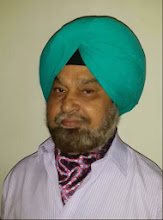Firstly, Think Tanks should in the normal course aim to influence targeted audience for getting their ‘mind share’. It should take a ‘systems approach’ to an issue with the ultimate objective of sound implementation to achieve the desired outcome. It is not correct to say that the Policy Makers or Others may not ‘heed to the advice, or may not be influenced’ by the Think Tanks. It does in a way. If not, these are not Think Tanks then - their research results may be ‘tainted’, not in line with the democratic values, or totally out of context. Think Tanks need not work in ‘vacuum’ of any kind and should relate to the existing or future course(s). That much for the concept.
Secondly, Think Tanks need to be staffed with practicing managers/researchers and academia of the right kind to tackle real-life situations, and not be pure ‘philosophic’. These should relate to our ‘own’ environments. This would help in looking at their findings from ‘Policy Angle(s)’. Who funds it may not be very important in today’s intellectual scenario; system sees it through and places credibility on the Think Tanks accordingly. There may be hundreds of them but a few are creditworthy.
Thirdly, the subject matter to be tackled could take the form of a 'Chair’, for long life. The Chair could be established in Corporates, Universities, Foundations, etc, provided they operate under the Charter of Think Tanks. Intellect is widely dispersed.
Mr Kanti Bajpai’s Article in today’s TOI on ‘ Think Tanks in India’s Democracy’ puts the subject issue in a perspective, but the 'common notion'.
Click: Think Tanks in Democracy
'Svipja Civil-Military Relations (CMR) Chair' be seen in this context, a faithful delivery to the Indian Democracy and its People in CMR.
Svipja Technologies
Secondly, Think Tanks need to be staffed with practicing managers/researchers and academia of the right kind to tackle real-life situations, and not be pure ‘philosophic’. These should relate to our ‘own’ environments. This would help in looking at their findings from ‘Policy Angle(s)’. Who funds it may not be very important in today’s intellectual scenario; system sees it through and places credibility on the Think Tanks accordingly. There may be hundreds of them but a few are creditworthy.
Thirdly, the subject matter to be tackled could take the form of a 'Chair’, for long life. The Chair could be established in Corporates, Universities, Foundations, etc, provided they operate under the Charter of Think Tanks. Intellect is widely dispersed.
Mr Kanti Bajpai’s Article in today’s TOI on ‘ Think Tanks in India’s Democracy’ puts the subject issue in a perspective, but the 'common notion'.
Click: Think Tanks in Democracy
'Svipja Civil-Military Relations (CMR) Chair' be seen in this context, a faithful delivery to the Indian Democracy and its People in CMR.
Svipja Technologies




No comments:
Post a Comment